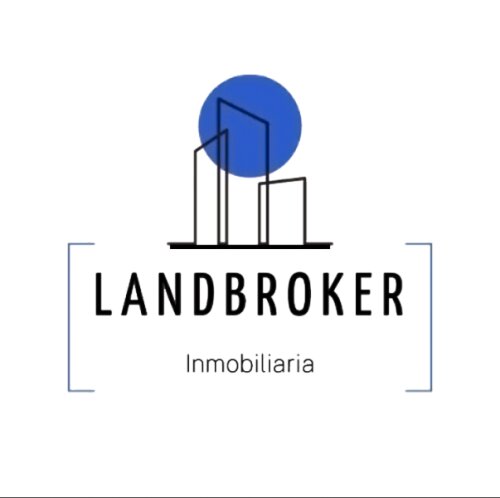Best Land Use & Zoning Lawyers in Córdoba
Share your needs with us, get contacted by law firms.
Free. Takes 2 min.
Free Guide to Hiring a Real Estate Lawyer
List of the best lawyers in Córdoba, Argentina
About Land Use & Zoning Law in Córdoba, Argentina
Land use and zoning law in Córdoba operates through a layered system of rules and authorities - national principles, provincial oversight, and detailed municipal regulations. The aim of these rules is to organize urban growth, protect agricultural and environmental areas, regulate building standards, and ensure compatible uses between neighbors. In practice this means most decisions about what you can build or do on a property are made at the municipal level, guided by provincial and national environmental or heritage rules for specific projects.
Why You May Need a Lawyer
Legal assistance is often necessary when the facts are complex, the regulatory stakes are high, or you face disagreement with authorities or neighbors. Common situations where a lawyer helps include:
- Applying for or appealing a zoning decision, construction permit, or certificate of use.
- Seeking a rezoning or a change of land use - for example converting agricultural land to residential or subdividing a plot.
- Responding to administrative fines, stop-work orders, or demolition orders issued by municipal authorities.
- Preparing or defending against expropriation, compulsory purchase, or municipal acquisition procedures.
- Navigating environmental requirements for larger developments - including environmental impact assessments and compliance measures.
- Resolving boundary, easement, servitude, or nuisance disputes with neighbors or developers.
- Structuring purchases, inheritances, or investments to ensure the intended use is allowed and legally safe.
Local Laws Overview
Below are the key aspects of the local legal framework you should understand when dealing with land use and zoning in Córdoba.
- Multi-tiered regulation - National constitutional and environmental principles set general limits; provincial bodies may adopt policy instruments for territory planning; municipalities adopt zoning plans, master plans, and ordinances that contain the specific rules that apply to individual properties.
- Municipal plans and ordinances - Each municipality typically has a Plan de Ordenamiento Territorial or similar urban planning instruments and zoning ordinances that define land-use categories - such as residential, commercial, industrial, mixed-use, agricultural, and protected natural areas. These instruments set permitted uses, conditional uses, prohibited activities, and technical parameters.
- Technical parameters - Zoning rules specify building parameters such as maximum height, setbacks from property lines, lot coverage or maximum built area, floor area ratio or utilization coefficients, parking requirements, and open space obligations.
- Permits and certificates - Before construction, change of use, or commercial activity in many cases you must obtain municipal permits such as a zoning certificate (certificado de zonificación), building permit or license to build (licencia de construcción), and final occupancy/habilitation (habilitación municipal).
- Subdivision and consolidation - Rules govern the subdivision (fraccionamiento) and consolidation (unificación) of lots, including minimum lot sizes, infrastructure requirements, and approval procedures. In rural areas there can be special limits to prevent uncontrolled parceling of productive land.
- Environmental regulation - Projects with potential environmental impacts may require an environmental study or environmental impact assessment (estudio de impacto ambiental) under provincial or national environmental law, and compliance with protected area or waterway rules.
- Heritage protection - Properties declared of historical, cultural, or architectural value are subject to special restrictions and procedures for alteration, demolition, or refurbishment.
- Enforcement and sanctions - Municipalities enforce zoning and building rules and may impose fines, stop-work orders, or orders to restore land. Administrative decisions can usually be appealed in administrative channels and then in the courts.
Frequently Asked Questions
How do I find out the zoning classification of a specific property?
Start at the municipal planning or urbanism office of the municipality where the property is located. Ask for the zoning plan, a certificado de zonificación or a technical report. The provincial cadastre or Registro de la Propiedad Inmueble can also provide official parcel data and registered limits. A lawyer or an agrimensor (licensed surveyor) can help obtain and interpret these documents.
What permits do I need before starting construction?
At minimum you usually need a building permit or licencia de construcción issued by the municipal authority. You may also need a zoning certificate, a final habilitación or occupancy permit once works are complete, and other approvals for utilities, fire safety, or heritage matters. Larger projects often require environmental clearance and approvals from provincial agencies.
Can I change the permitted use of my land - for example from agricultural to residential?
Changing land use often requires a formal administrative process - rezoning or a modification of the municipal land-use plan. This can be lengthy, may require public notice and hearings, and sometimes conditions such as infrastructure improvements. Rezoning is decided by municipal councils or planning authorities and can involve technical and legal assessments.
What happens if I build without a permit?
Municipalities may impose fines, issue stop-work orders, require corrective works, or in extreme cases order demolition or removal of unauthorized construction. Unauthorized works can also create problems for selling or registering the property. You can often seek ratification or legalization procedures but these depend on local rules and whether the construction violates essential planning rules.
Do I need an environmental impact assessment for my project?
It depends on the project's size, location, and potential impacts. Many provincial and national rules require an environmental study for larger developments, activities near protected areas, waterways, or for projects that could affect soil, water, or biodiversity. Municipalities may also require environmental documentation for certain permits.
How are disputes between neighbors over land use resolved?
Initial steps usually include direct negotiation or mediation. If that fails, you can file an administrative complaint with the municipality or pursue civil litigation for nuisance, servitude enforcement, or property boundary disputes. A lawyer can advise on the best route and assist with obtaining technical evidence such as surveys or expert reports.
What are common grounds to appeal a municipal zoning decision?
Common grounds include procedural defects - lack of proper notification or public hearing - errors in applying the zoning ordinance, arbitrariness, or breach of constitutional or statutory rights. Administrative appeals must typically be filed within statutory deadlines and may be followed by judicial review if administrative remedies are exhausted.
Who enforces zoning and building rules?
Municipal planning, urbanism, or building departments enforce local zoning and construction rules. Provincial agencies may enforce environmental or protected area rules. Enforcement can include inspections, fines, administrative orders, and referral to courts for enforcement of penalties or demolition orders.
What documentation should I gather before consulting a lawyer?
Collect the property deed or title, cadastral plan, municipal taxes receipts, existing plans or blueprints, any prior permits or licenses, correspondence with municipal authorities, survey reports, and any notices or fines received. Having technical reports - structural, environmental, or topographic - helps speed legal assessment.
How much does legal help typically cost in land use matters?
Costs vary widely depending on complexity - simple consultations and permit applications are relatively low cost, whereas rezoning, litigation, or environmental compliance for large projects can be significant. Fee structures include hourly rates, fixed fees for specific services, or contingency arrangements in some dispute cases. Ask for a written fee agreement that sets out services and expected costs.
Additional Resources
Useful institutions and professionals to consult include:
- Municipal planning, urbanism, or obras publicas departments in the relevant municipality.
- Gobierno de la Provincia de Córdoba - offices or departments responsible for territorial planning, environment, and infrastructure.
- Dirección General de Catastro or the provincial cadastre office for parcel and mapping data.
- Registro de la Propiedad Inmueble de la Provincia de Córdoba for title and encumbrance information.
- Colegio de Arquitectos and Colegio de Ingenieros for technical professionals and certifications.
- Colegio de Escribanos and Colegio de Abogados de Córdoba for legal and notarial guidance.
- Secretaría de Ambiente or provincial environmental authority for environmental permits and rules.
- Defensoría del Pueblo de Córdoba or local ombudsman offices for public complaints and guidance.
- Licensed agrimensores (surveyors), environmental consultants, and urban planners for technical reports.
Next Steps
Follow these practical steps if you need legal assistance:
- Identify and document the property - gather title deeds, cadastral maps, and any prior permits.
- Check the municipal zoning classification and planning instruments for the property - request a certificado de zonificación from the municipal planning office.
- Obtain technical assessments as needed - a survey, an architectural plan, or an environmental pre-assessment to clarify regulatory requirements.
- Consult a lawyer experienced in land use and zoning to review your goals, advise on permits, risks, and timelines, and represent you before municipal or provincial authorities.
- Discuss with your lawyer the expected costs, likely procedures, and any alternative dispute resolution options such as mediation.
- If an administrative decision is adverse, act quickly to meet appeal deadlines and preserve evidence - administrative appeals are time sensitive.
- Keep detailed records of all applications, communications, payments, and official notices to support any future legal steps.
Working early with both a qualified lawyer and the right technical professionals will increase your chances of a predictable outcome and reduce the risk of costly delays or enforcement actions.
Lawzana helps you find the best lawyers and law firms in Córdoba through a curated and pre-screened list of qualified legal professionals. Our platform offers rankings and detailed profiles of attorneys and law firms, allowing you to compare based on practice areas, including Land Use & Zoning, experience, and client feedback.
Each profile includes a description of the firm's areas of practice, client reviews, team members and partners, year of establishment, spoken languages, office locations, contact information, social media presence, and any published articles or resources. Most firms on our platform speak English and are experienced in both local and international legal matters.
Get a quote from top-rated law firms in Córdoba, Argentina — quickly, securely, and without unnecessary hassle.
Disclaimer:
The information provided on this page is for general informational purposes only and does not constitute legal advice. While we strive to ensure the accuracy and relevance of the content, legal information may change over time, and interpretations of the law can vary. You should always consult with a qualified legal professional for advice specific to your situation.
We disclaim all liability for actions taken or not taken based on the content of this page. If you believe any information is incorrect or outdated, please contact us, and we will review and update it where appropriate.









